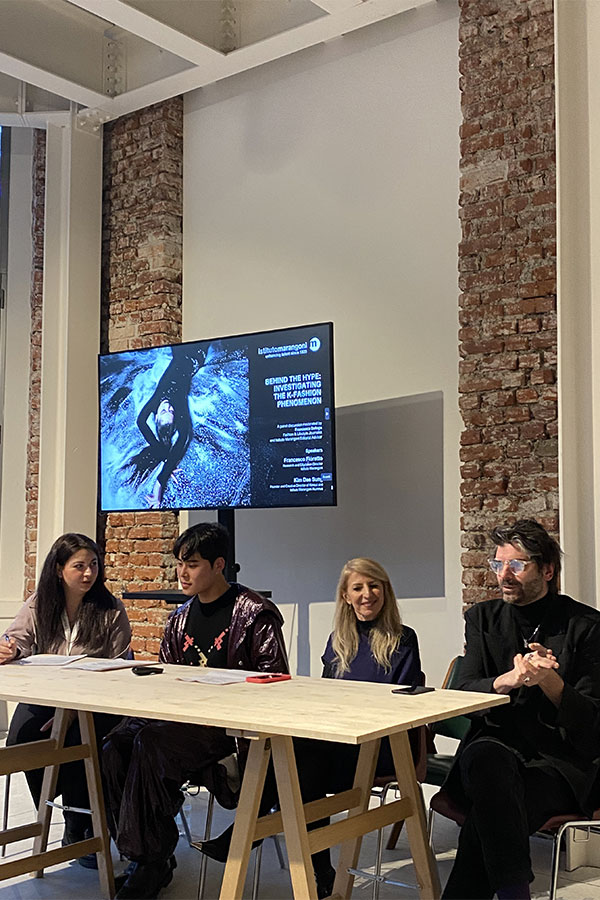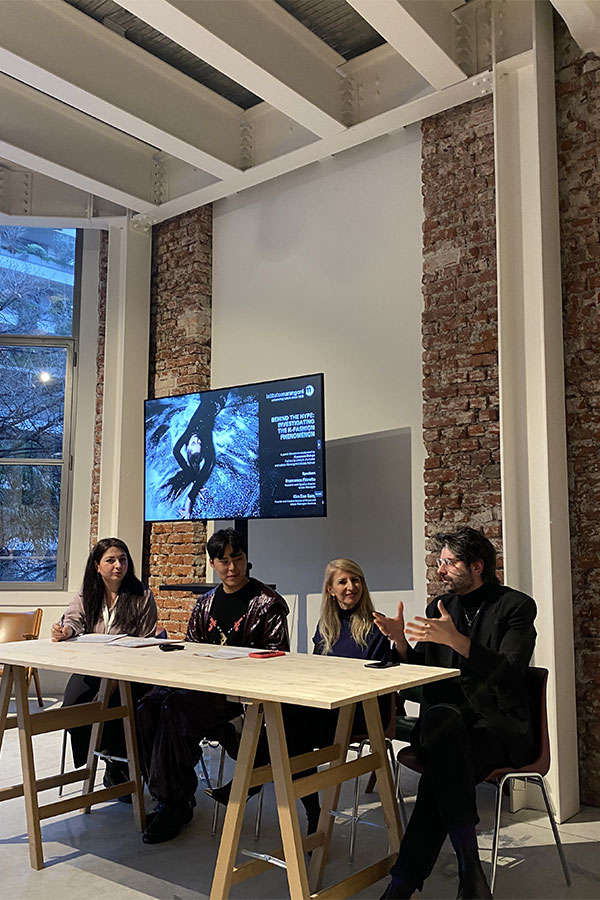What to know about Korea’s new designer wave beyond Seoul Fashion Week



South Korea is changing the cultural game globally. Meet the insiders revealing how K-fashion (and K-movies) are taking over
What happened at Seoul Fashion Week Spring-Summer 2025? And why should it be on your radar right now? With Hallyu—the Korean Wave—taking over global culture like never before, Korean influence is making waves across every creative sphere, from music and cinema to fashion, beauty, and social media.
Even Korean fashion, also known as K-fashion, has emerged as a major influence in recent years. Its focus on sustainability, responsibility, and the balance of contrasts and harmonies in design has not only shaped the Asian fashion landscape but also made a notable impact on the global industry. This rise of K-fashion can be partly credited to Seoul Fashion Week, which was established in 2000 to showcase Korea’s top designers on the international stage. Held twice a year, this September’s Spring-Summer 2025 edition took place at Dongdaemun Design Plaza (DDP) from Tuesday, September 3 to Saturday, September 7.
View this post on Instagram
The SS25 season kicked off with Youser, a brand founded by Lee Moo Yeol, presenting its show on September 3. This edition saw the debut of six new names—Duckdive, L’Eau Et, Arts De Base, Kelly Shin, Cokie, and Phenomenon Seeper—alongside 21 established K-fashion labels such as Ajobyajo, Ulkin, and Maison Nica. Local talents showcased their designs, while street stylers embraced bold choices, stepping out in everything from head-to-toe black looks and the latest streetwear trends to body-con outfits, sheer fabrics, skin-tight catsuits, and eye-catching animal prints.
View this post on Instagram
But what do rising Korean designers really think about their trendsetting influence? We had the chance to explore this at the inaugural Milan Loves Seoul event, held during the latest Milano Fashion Week womenswear. This event was created to promote cultural exchange between Italy and South Korea while spotlighting top-tier Korean and Italian labels. A key moment was the panel featuring Kim Dae Sung, Founder and Creative Director of Kimoui and IM Alumnus, who offered valuable insights into the K-phenomenon. Francesca Delogu, Fashion and Lifestyle Journalist, and Francesco Fioretto, Research and Education Director at Istituto Marangoni, also joined the conversation. Their discussion offered plenty of food for thought on the spread and future of K-fashion.

Francesco Fioretto, Research and Education Director at Istituto Marangoni and Francesca Delogu, Fashion and Lifestyle Journalist in conversation with Kim Dae Sung, Founder and Creative Director of Kimoui during the Milano Love Seoul event
Genderless, Adaptive, and Influential: Redefining Dress Codes
On his Instagram, Kim Dae Sung introduces his Kimoui label as a “unisex contemporary designer brand.” For Kim, the essence of design lies in playing with bold colour combinations, especially in wool, cashmere, and cotton knitwear—the staples of his collection. Kim Dae Sung’s approach is all about exploring fundamental sensitivity through expansive, fluid shapes. He pairs vibrant hues with practical silhouettes to create a unique dialogue that challenges gender norms and dress codes.
View this post on Instagram
K-Fashion Goes Beyond Street Style
Sure, a lot of Korean brands are diving deep into street style thanks to K-pop’s massive influence. But Kim Dae Sung is pushing for something different—he’s all about diversifying styles within his brand.
While established labels in South Korea have their own opportunities, it’s the up-and-coming brands that are truly gaining traction. That’s why the market should expand its perspective and fully embrace these new styles and fresh designs, moving beyond its current focus on street style.
What Is the K-Factor?
So, what sets K-fashion apart? According to Francesco Fioretto, K-fashion is unique because its development process runs counter to what you see in neighbouring countries.

Francesco Fioretto, Research and Education Director at Istituto Marangoni and Francesca Delogu, Fashion and Lifestyle Journalist in conversation with Kim Dae Sung, Founder and Creative Director of Kimoui during the Milano Love Seoul event Take China, for example. Western fashion is often introduced directly to local markets, as seen with Balenciaga’s Spring 2025 runway show, technically a Resort 2025 collection, held in Shanghai. Here’s a fun fact: despite Balenciaga having more stores in China than anywhere else, this was their first show in the country. What does this move by the Kering-owned brand, under Demna’s creative direction, reveal? It suggests that China sees Western fashion as an “arrival point” to admire and consume before eventually returning to its roots. In contrast, South Korea’s fashion starts by seeking a contemporary identity and establishing a strong “domestic” reputation through local designers. K-fashion’s distinctive features include innovative shapes, meticulous attention to materials, and daring marketing strategies.
From Fashion to Cinema: How K-Movies Are Hitting the Global Scene
During the discussion, the spotlight was on the remarkable influence of K-power and its wide-reaching impact on society.
Journalist Francesca Delogu made a significant observation about K-movies: while Hollywood continues to churn out Marvel superheroes, Korean directors are producing exceptional auteur films—thoughtful, deliberately paced, and with a distinct focus on characters and human experiences.
Bong Joon-ho’s Parasite made history at the 2020 Oscars by becoming the first foreign-language film to win Best Picture. Its contemporary storytelling addressed themes that mainstream American cinema often overlooks.
Similarly, Netflix’s Squid Game made history by becoming the platform’s first non-English series to top the global viewing charts. It set a new record with 1.65 billion hours of viewing in its first month, more than double the 625 million hours recorded by the first season of Bridgerton.
Silvia Tarini
Editor



